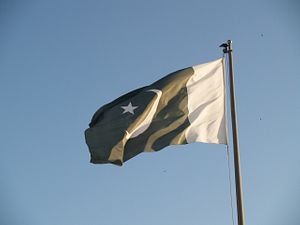On Saturday, Taimoor Raza was sentenced to death in Bahawalpur, a city in southern Punjab, Pakistan, for alleged blasphemy. While the accused was yet another in a long list of victims of the country’s blasphemy law, who have either been arrested or were casualties of mob violence, Raza is the first to be sentenced to death for blasphemy on social media.
Raza, a Shia Muslim, has been accused of insulting the wives of Prophet Muhammad, among other prominent personalities of Sunni Islam.
According to Section 298-A of Pakistan’s Penal Code, defiling “the sacred name of any wife (Ummul Mumineen), or members of the family (Ahle-bait), of the Holy Prophet (peace be upon him), or any of the righteous Caliphs (Khulafa-e-Rashideen)” carries a maximum punishment of three years in prison.
However, Raza has simultaneously been charged with breaching section 295-C of the Penal Code, which sanctions death for blasphemy against Prophet Muhammad. The second charge has been added to “maximize the penalty” for the accused.
That there are laws that sanction death for expressing views in the 21st century is an abomination in itself. But the fact that codification of these barbaric laws has penetrated the digital realm should be cause for severe backlash.
Last year Pakistan passed its cybercrime law, which upheld punishments for Penal Code crimes in the digital sphere as well, ensuring that blasphemy committed online would get the death sentence. However, the Penal Code being upheld hasn’t prevented calls for a section of the cybercrime law to be dedicated to blasphemy, to forestall the “crime” from being interpreted leniently.
Following the passage of the cybercrime law, the state has formally been at war with online dissent, most of which is dedicated to violently suppressing critique of religion.
In January this year, secular bloggers and activists, accused of being affiliated with pages critical of religion and the Army, were simultaneously abducted from various parts of the country. Even though most of them were subsequently recovered, one of these activists confirmed that the state’s security agencies were behind the kidnappings and the ensuing torture.
Basing the case against Pakistan’s blasphemy law on the very principles of free speech would suffice in most parts of the world – for there’s no freedom of speech, without the freedom to offend. But even if the Pakistan state were to shun philosophical rectitude, or Article 20 of its own Constitution, which guarantees freedom of conscience, the blasphemy law has become an existential threat for the state itself.
In addition to getting the first-ever death sentence for a crime committed on Facebook, there was another striking feature of Raza’s “crime.” The “disrespect” of the figures of Sunni Islam, which members of the Shia minority in Pakistan are often accused of, emanates from theological differences between the two sects.
Regardless of the beliefs that certain sections of the Shia Muslims might uphold vis-à-vis the order of the caliphs following Prophet Muhammad’s death, and with regards to his companions, these are ideological positions that demarcate the Islamic sects.
By conflating Raza’s alleged disrespect for the esteemed figures of Sunni Islam with insult for the Prophet himself, the case impeccably outlines the fatal flaws in Pakistan’s blasphemy law.
First, the law treats theological disagreements as blasphemy itself. This is what prompted the state to constitutionally outlaw the entire Ahmadiyya sect of Islam in 1974, resulting in the ensuing religious apartheid for the community.
Second, the reference point the state is using to gauge sacrilege in other ideological positions is that of the narrowest, most bigoted brand of Sunni Islam, despite its reformist interpretations redefining the position on blasphemy.
Third, after deeming religious disagreements as blasphemous according to the prism defined by hardline Sunni Islam, the state has upheld capital punishment for a crime of conscience, which encourages mob justice through the simple reasoning that being offended is enough to send the offender to the gallows.
More often than not, the mob doesn’t wait for the judiciary to decide on their behalf whether or not their religious sentiments were offended. That Pakistan has never actually executed a person for blasphemy, despite the law being three decades old, further encourages the offended mob to take the law in its own hands.
Pakistan had a moratorium on capital punishment between 2008 and 2014, owing to human rights considerations as a democratic state. Executions restarted following the December 2014 Peshawar school attack, but were limited to terror-related offenses. Pakistan can’t go from being the state that “revered human dignity” to one that executes people for the victimless crime of blasphemy.
For Pakistan to fulfill its commitment to the United Nations Declaration of Human Rights, to which it’s a signatory, the state would have to abolish the blasphemy law, even if it judicially has no blood on its hands.
Otherwise Pakistan would continue to hover between a liberal democracy that values human life and a totalitarian theocracy that sustains itself on decapitations, until the relentless mob lynching incidents force its hand to pick a side.
Pakistan’s existence as a democratic state will remain on the line as long as the blasphemy law remains a part of its Penal Code. That the state-sanctioned violence has gone digital further pushes Pakistan toward ruthless autocracy.

































